We used to call it a ‘meat and two veg’ programme, back in my concert planning days: the reliable set menu of an overture, a concerto and a symphony. It was an unfortunate term. No artistic planner likes to feel that they’re playing it safe, still less (and sources report that this goes double at the BBC) that they’re giving the public what they want. Traditional formats, familiar warhorses, dead white males: yawn! Then Paavo Jarvi and the Tonhalle-Orchester Zürich rock up at the Proms with a Beethoven overture, a Tchaikovsky concerto and Dvorak’s New World symphony and what do you know? The Royal Albert Hall was packed.
In fairness, it’s not every day that you get to hear Beethoven’s overture The Consecration of the House, though its late opus number (Op.124, so contemporary-ish with the Missa Solemnis) is a signal to expect something interesting. There are the necessary elements of ceremonial: slashing chords (the strings lifted their bows with a flourish) and fanfares, given a black marble gleam by the Zürich brass. But the body of the piece is a brilliant full orchestral fugue, and really, how often do you hear Beethoven do that? There’s the finale of the Ninth Symphony, true, and the so-called Grosse Fuge. But a fugue for the fun of it, like Mozart did in the overture to Die Zauberflöte – the human mind dancing before the Lord for sheer joy? There aren’t that many.
Anyway, there’s one here, and it gained immeasurably from, well, the BBC referred to the Tonhalle-Orchester’s ‘Swiss precision’, and there really was a certain clarity to the ensemble sound; not so much a question of transparency (there was no shortage of heft when required) but of discipline being brought to bear with absolute focus. The violins fizzed: none of your blowsy carbonated sparkle, but tingling méthode champenoise bubbles. Jarvi kept the lid on and let the energy build until we got pretty much the most euphoric sensation that the classical concert hall can offer – a virtuoso orchestra motoring along at just below boiling point, with all that potential bristling and tugging at the end of an incredibly taut leash.
A good start, then, and the Tchaikovsky Violin Concerto offered the piquant experience of a string section that, for needlepoint finesse, could give the soloist a run for their money – which, when the soloist is Augustin Hadelich, is saying something. Jarvi solved the conundrum with orchestral playing of chamber-music delicacy and softness. Hadelich stood out as if spotlit, though the overall effect was intimate. And Dvorak’s symphony sounded more than usually fresh and forceful, with an additional layer of sonic enchantment. The piece is full of colours that often sweep by unnoticed: a floating chord for double basses at the end of the Largo; a tuba that plays only 14 notes in the whole symphony, and a pair of cymbals that play only one. There they all were, quivering under the magnifying glass of the Zürich/Jarvi sound, while the chords that support the famous cor anglais solo were so hushed and tender that you held your breath. A formidable display of soft power.
Two nights later it was the turn of Chineke!, conducted (or ‘led’, as the BBC TV presenter put it) by Anthony Parnther. The programme was a grab-bag: Haydn’s Trumpet Concerto (lacklustre) and Beethoven’s Fourth Symphony plus miniatures by Valerie Coleman, Samuel Coleridge-Taylor and his US namesake Coleridge-Taylor Perkinson. Coleridge-Taylor was a thoroughly likeable Edwardian romantic, and his Four Noveletten are exactly the kind of melt-in-the-mouth bonbons with which Sir Henry Wood used to sweeten his Schoenberg and Scriabin premières. I’m all for this sort of retro-revivalism, especially when it’s done with such affection. Later, the moto-perpetuo finale of Perkinson’s Sinfonietta No.1 made a bracing upbeat to the Beethoven, with its own whirlwind finale. Why couldn’t we hear the whole piece?
Meanwhile, Charles Court Opera brought its touring production of The Mikado to If Opera, the late-flowering summer festival that has recently rooted itself in the grounds of an insanely pretty manor house in Bradford-on-Avon. The director John Savournin (probably the most instinctive Savoyard of his generation) had tweaked the setting and script slightly: we were in a British consulate in 1950s Japan, and if that sounds like heresy, I refer you to Ian Bradley’s Complete Annotated Gilbert & Sullivan. Topical rewrites were standard practice in the D’Oyly Carte days. What matters is that CCO is a true repertory company, with an irresistible style. They sing, dance and bounce off each other (sometimes literally). From an orchestra that relishes every ingenious detail of Sullivan’s score, to Matthew Kellett’s rubber-faced geezer of a Ko-Ko and Catrine Kirkman’s unsinkable, Princess Anne-like Katisha, everyone involved takes full, inventive ownership of their role. That’s rarer than it sounds, and it’s a delight.
Got something to add? Join the discussion and comment below.
Get 10 issues for just $10
Subscribe to The Spectator Australia today for the next 10 magazine issues, plus full online access, for just $10.
You might disagree with half of it, but you’ll enjoy reading all of it. Try your first month for free, then just $2 a week for the remainder of your first year.

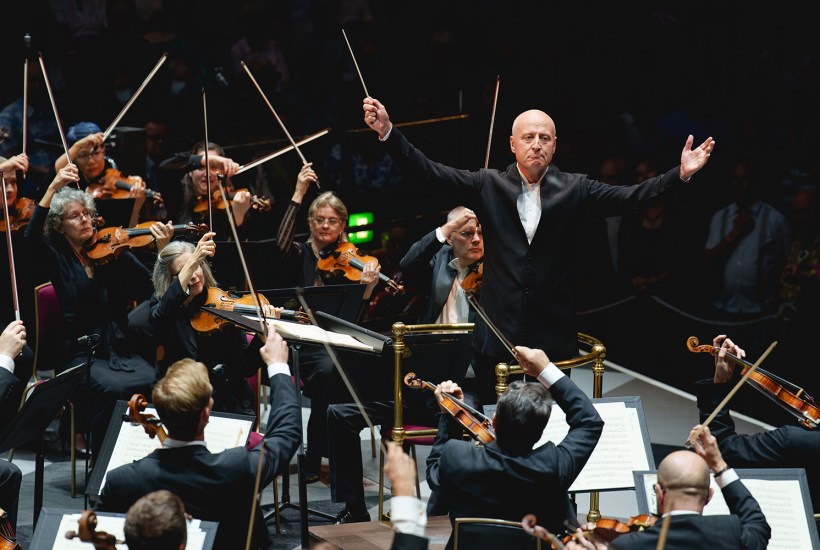
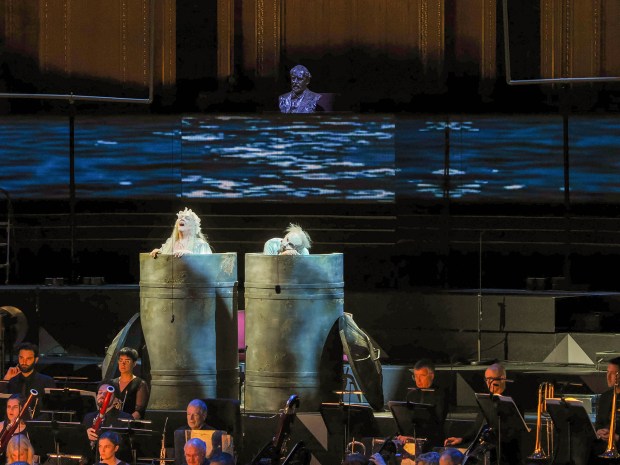
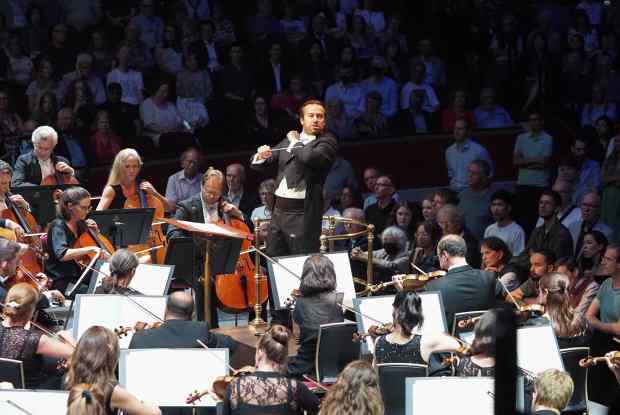
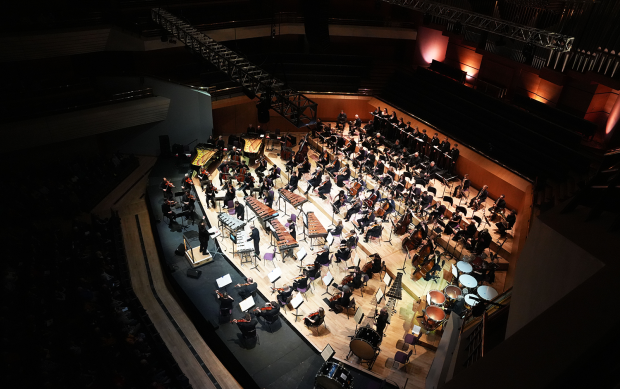
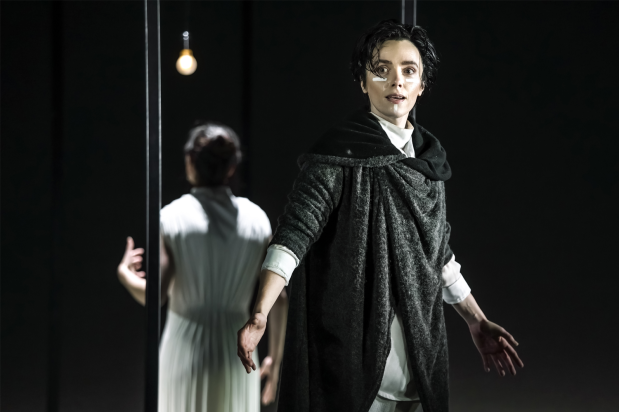
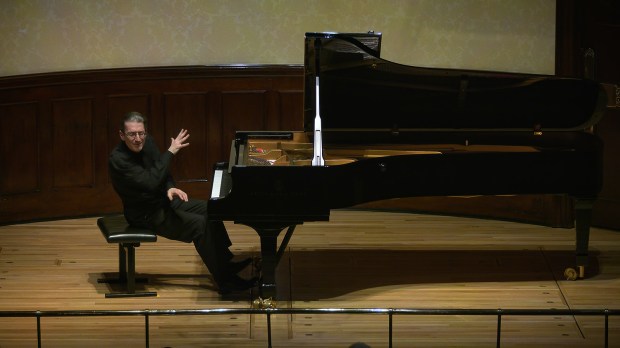
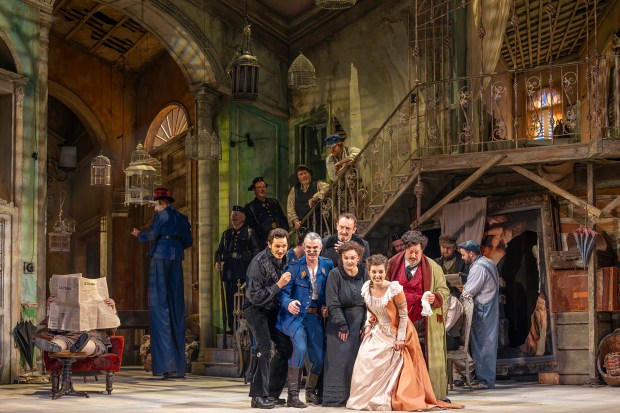






Comments
Don't miss out
Join the conversation with other Spectator Australia readers. Subscribe to leave a comment.
SUBSCRIBEAlready a subscriber? Log in